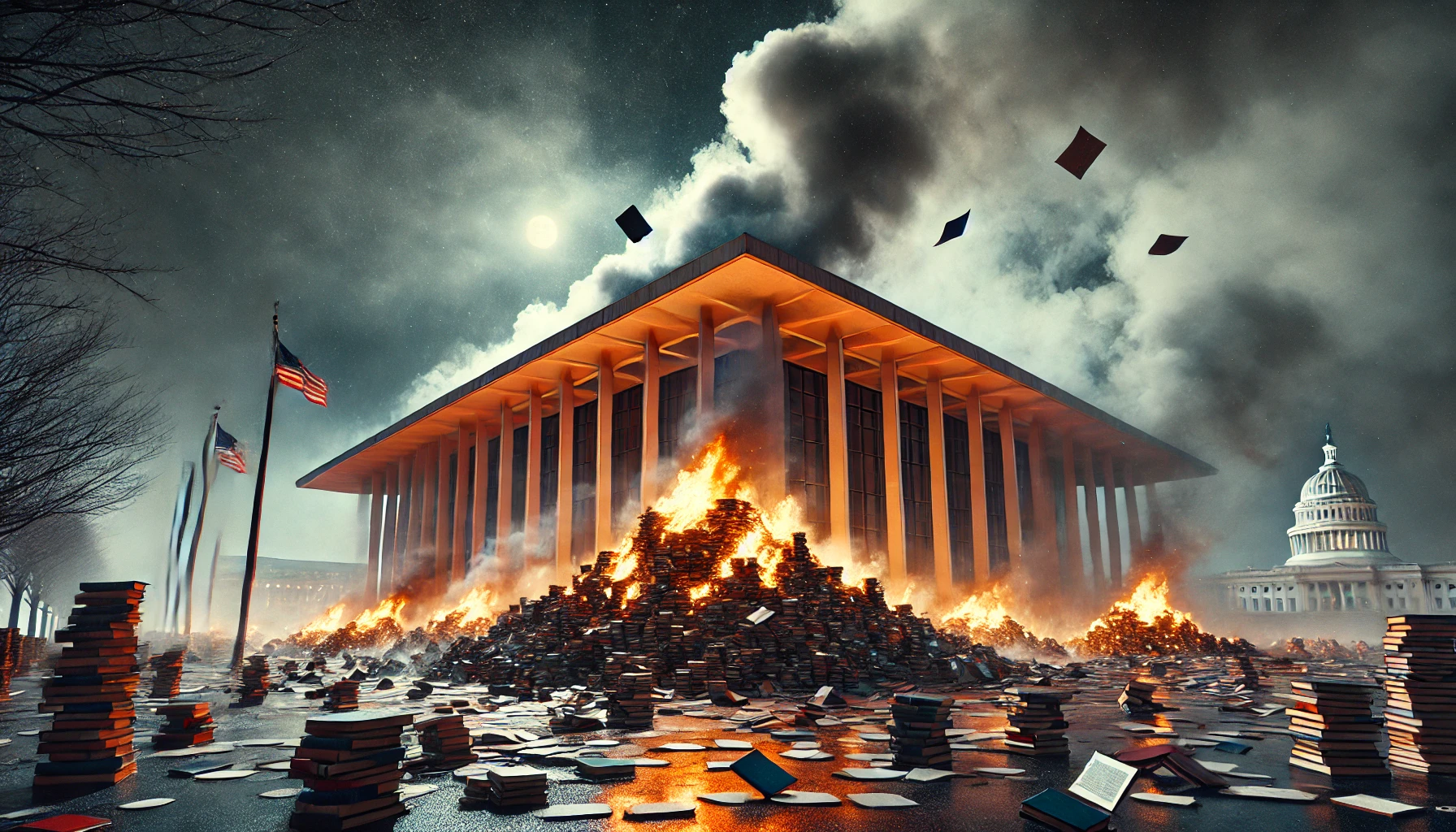
Book Burning on the Potomac
Book Burning on the Potomac
By David Eugene Perry
This morning, three weeks in of “47” (I refuse to say the name), I was merely sad. Now, I am genuinely frightened. When the chief executive of a country decides what is art, then book burnings, truly, are not far behind.
Hyperbole? Whether sanctioned by the state or not, suppression of the arts is the oil on an already greasy slope to dictatorial rule. First they came for the Kennedy Center, then – I promise – to the local theatre, school play, public library or Opera in the Park that in any way receives federal dollars. Trump’s cry of “No drag queens” (he said that a mere few hours ago) for the Kennedy Center gives license not only to homophobes and the ultra right, it gives license to all those who think art, in general, should only be “pretty.”
I was taught that “Art is the revelation of private truth in public.” Private truth is, sometimes, pretty. But often, it is harsh, nasty, brutish, and yes sometimes offensive to some. In short, it is exactly like life. Now, for the first time in our history, a president has decided what the premiere arts institution in the most important capital city on earth can show. What is more astounding: evidently it is all perfectly legal.
The John F. Kennedy Center for the Performing Arts was established by the National Cultural Center Act, which was signed into law on September 2, 1958 by President Dwight D. Eisenhower. This legislation authorized the creation of a national cultural center in Washington, D.C. After President John F. Kennedy’s assassination in 1963, Congress amended the act in 1964 to rename it the John F. Kennedy Center for the Performing Arts as a memorial to the late president. That legislation allows for the President of the United States to appoint – and fire – its board. No president has ever dared – until now.
My first job, which I started in May 1984 fresh out of college was working for the National Endowment for the Arts – the building, to my mind, disgraced by its brief-but-not-brief-enough stint as the “Trump Hotel.” In those halcyon days, a Republic President, Ronald Reagan, left in charge the administration appointed by the previous president, Jimmy Carter. To even that staunchly conservative president, censoring the arts was a bridge too far. For “47”, there is no bridge, clearly too far, or no bridge in his attempted power, too sacred not to burn.
The books have been chosen. The gas has been poured. The match is lit and already in motion to be thrown.
David Eugene Perry has worked in the arts for over 40 years. He is the author of hundreds of articles, and also a novelist.